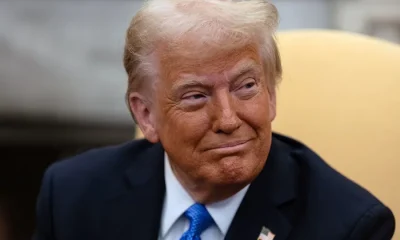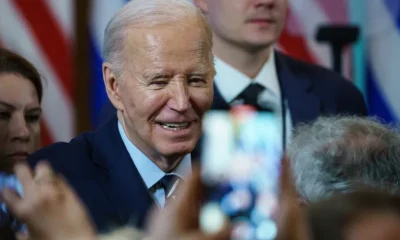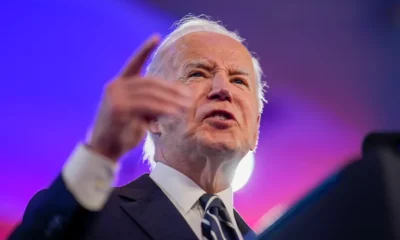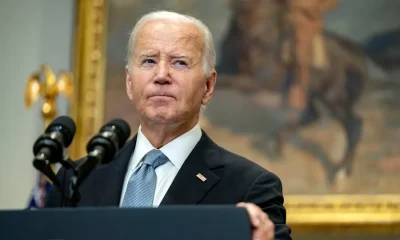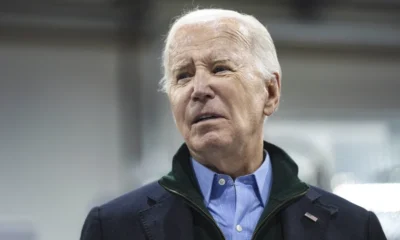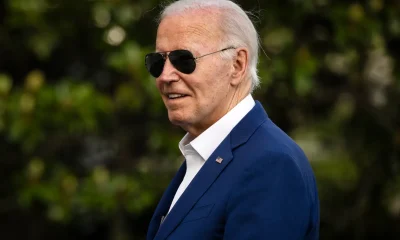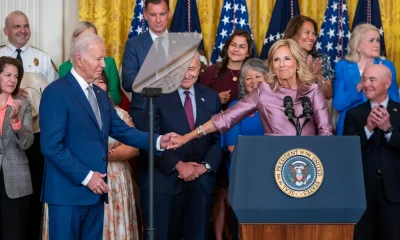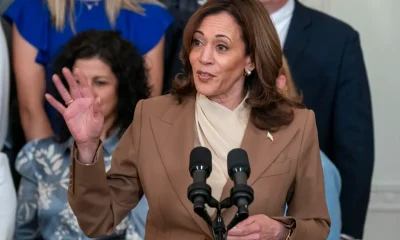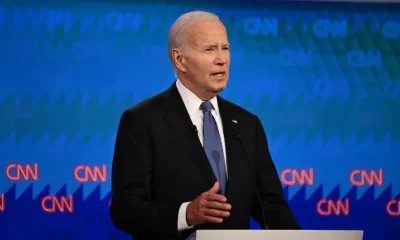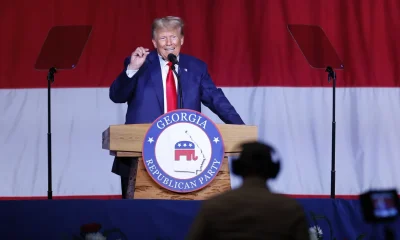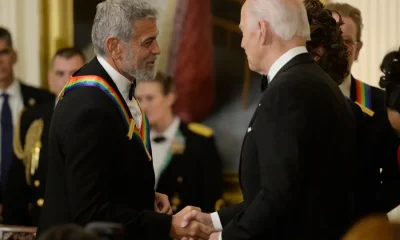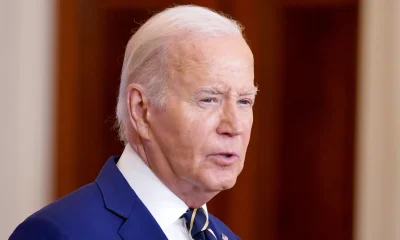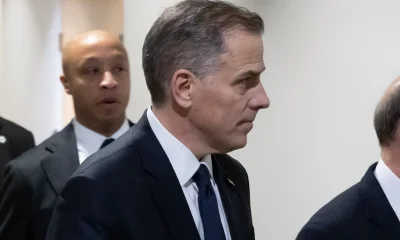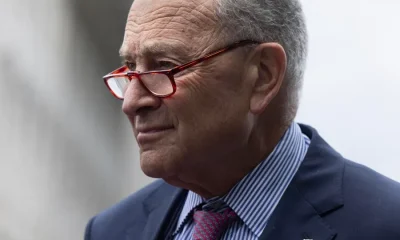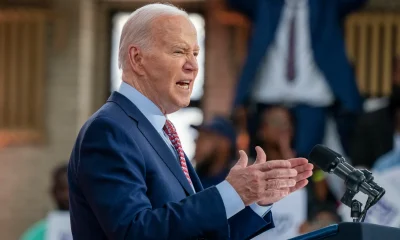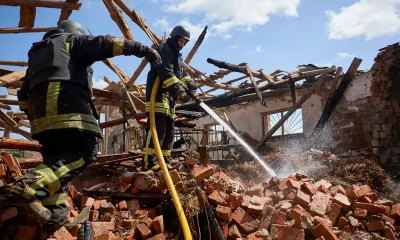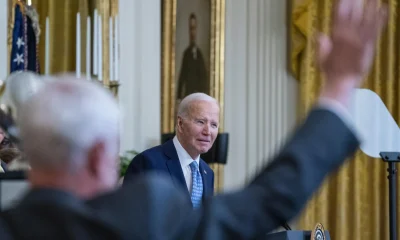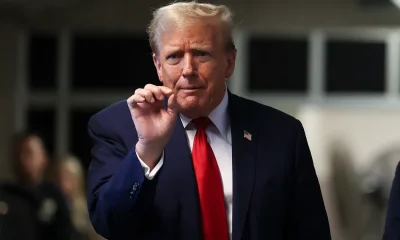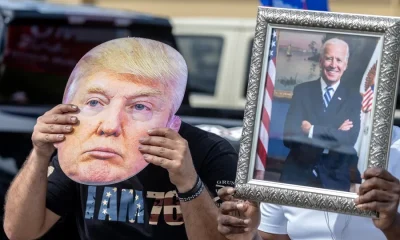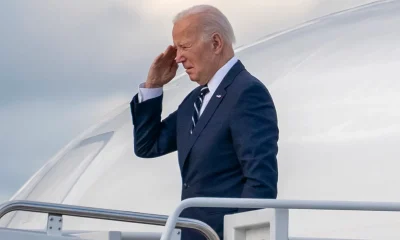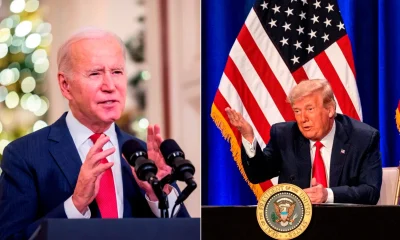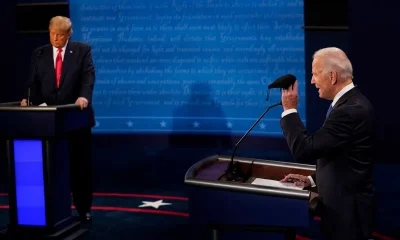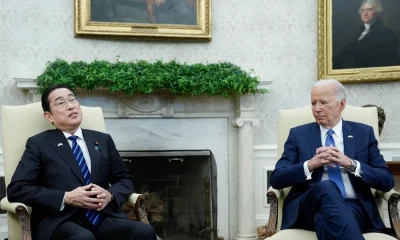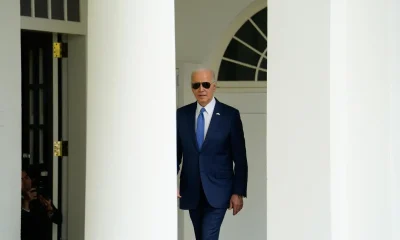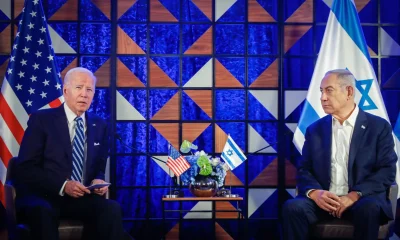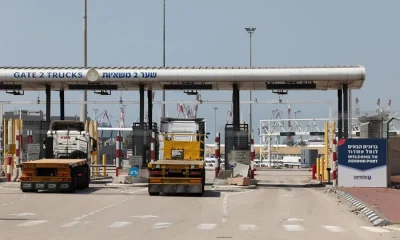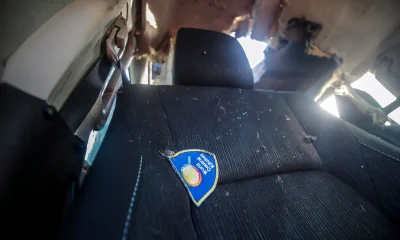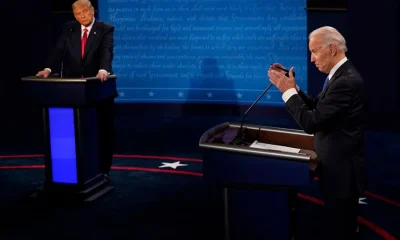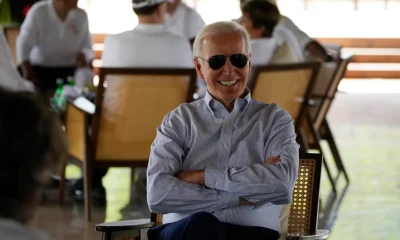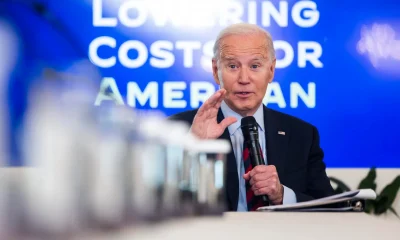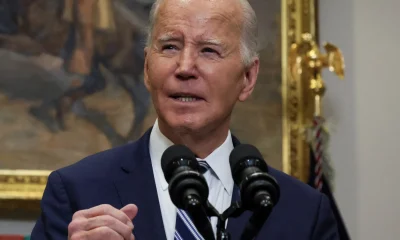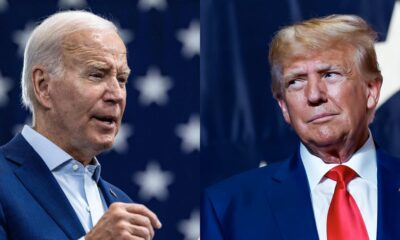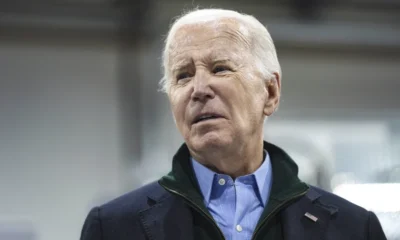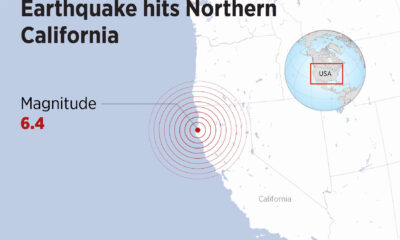International
The battle of the tribes of California for Biden to protect their ancestral lands
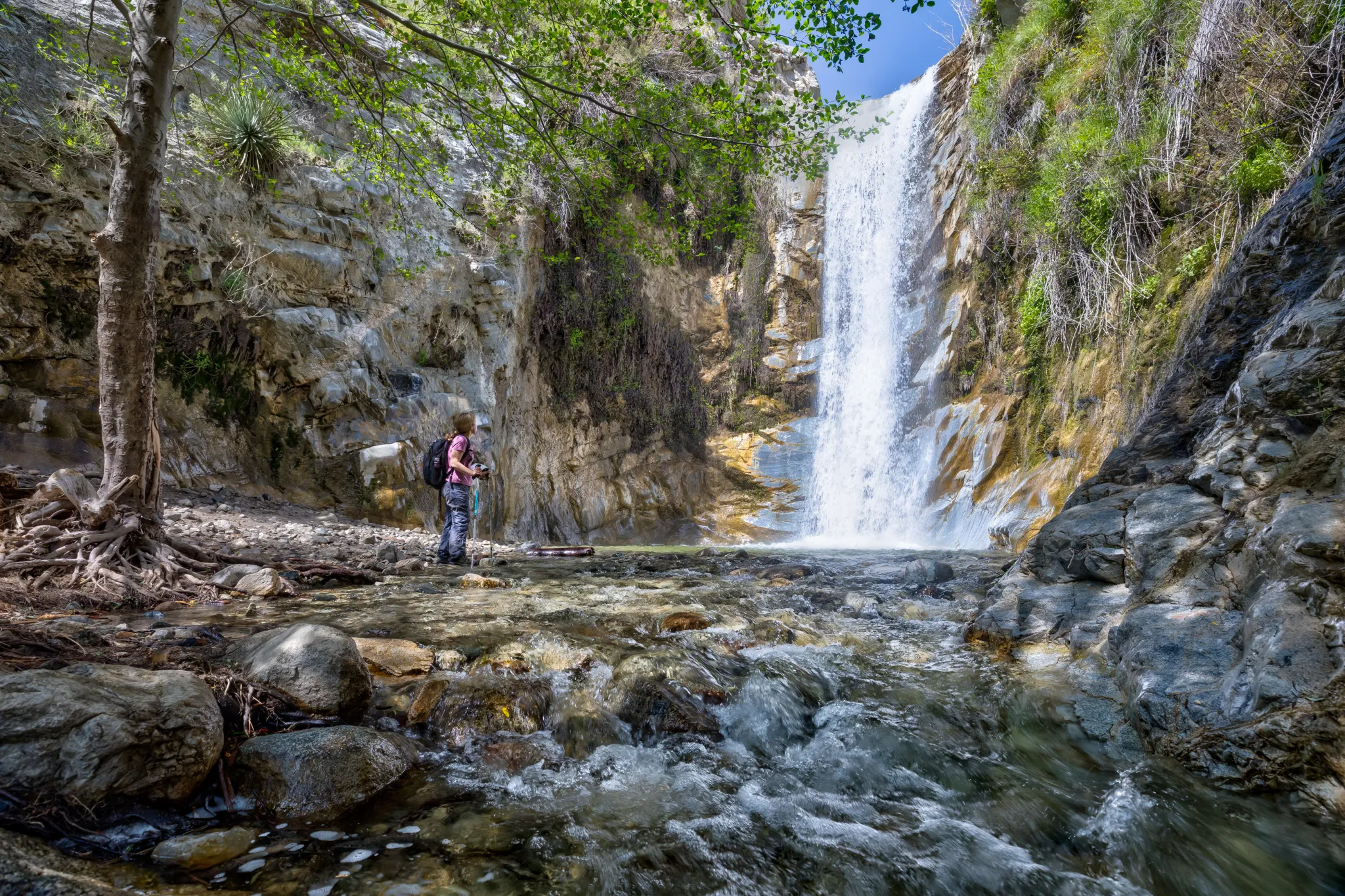
A coalition of Native American tribes from California is fighting an intense struggle for the president of the United States, Joe Biden, to protect their ancestral lands, a vast territory of 400,000 hectares that treasures not only rare species of flora and fauna, but also the legacy of peoples who have lived for centuries with that sacred nature.
This contest has been ongoing for years but it becomes more urgent in the face of the proximity of the November elections, in which Biden will again face the Republican Donald Trump, who during his term (2017-2021) approved oil projects that harmed the Native Americans.
The lands they are fighting for are “irreplaceable,” Thomas Tortez, president of the Torres Martínez desert indigenous people and who has asked Biden to declare about 267,000 hectares as a national monument in the Chuckwalla Valley, in Southern California, explained to EFE and expand the Joshua Tree National Park.
“When someone goes to a sanctuary and it catches fire or is knocked down, they can erect another temple in another place. But when the site that embodies our culture is intrinsically linked to a place and a specific land like the one we have here, there is no human way to replace it,” Tortez says vehemently.
Therefore, he urges Biden to protect the lands of his tribe using the 1906 Antiquities Act, which gives the president the ability to create national monuments on federal land without having to go through Congress.
The lands that Tortez defends are, in large part, desert. It might seem that they are sterile, devoid of life, but for Native Americans, this area contains a rich history, with plants that can be used for medicinal, food or spiritual purposes, and animals that have coexisted with the community for centuries.
Even the hills, with their tones ranging from magenta to lighter shades of red, are interpreted by Native Americans as a reminder of the stories of creation and the presence of divinity, says Tortez.
In addition to protecting these lands, the tribal coalition seeks Biden to expand and designate four other national monuments in California.
Among them, the effort of the tribes of the Tataviam Fernandeño and Gabrieleno missions to expand the national monument of the San Gabriel mountains, near Los Angeles, on about 44,100 hectares, stands out.
Within this territory are the remains of three indigenous peoples prior to the Spanish colonization and that are of great importance for the tribes, whose families go there to teach their origins to the new generations, the president of the Tataviam Fernandeño missions, Rudy Ortega Jr., explained to EFE.
Ortega Jr., whose father was also the leader of the tribe for five decades, believes that this effort to expand the national monument of the San Gabriel mountains is part of the struggle that his tribe has fought for centuries to protect its territory.
In its beginnings, its land covered more than 600,000 hectares, from the Antelope Valley to the Pacific Ocean. However, by 1900, it was reduced to zero, and since then they have had to fight to recover their lands.
Another objective of the coalition is to achieve the designation as a national monument of almost 81,000 hectares in the mountainous area of Lake Medicine, which would make it possible to safeguard the heritage of peoples with a long history in that area of northern California, such as the Pit River tribe.
The Quechan tribe of Fort Yuma also longs for the Kw’tsán mountains to be established as a national monument, and finally, the yocha dehe wintun nation wants the Berryessa Snow Mountain national monument to be expanded and Molok Luyuk to be permanently protected, which translates as “condor crest.”
These lands embody the soul of the tribes. As Anthony Roberts, leader of the yocha dehe wintun nation, told EFE, ensuring the protection of those territories is part of the “sacred responsibility” that those peoples have with nature, from which all forms of life emanate.
Central America
Senator Van Hollen Meets with Deported MS-13 Member in El Salvador; Trump and Bukele React

U.S. Democratic Senator Chris Van Hollen, representing the state of Maryland, held a meeting in El Salvador with deported MS-13 gang member Kilmar Ábrego García, a member of the criminal group classified by the U.S. government as a terrorist organization.
“Kilmar Ábrego García, miraculously resurrected from the ‘extermination camps’ and ‘torture chambers,’ now sipping margaritas with Senator Van Hollen in the tropical paradise of El Salvador!” wrote President Nayib Bukeleon X (formerly Twitter), sharing photos of Van Hollen, Ábrego García, and a lawyer sitting together at a Salvadoran hotel.
The deported gang member is seen wearing a plaid shirt and a flat-brimmed cap, seated at a table with glasses and coffee cups. The senator also shared images of the meeting on his own social media accounts.
Bukele reaffirmed that Ábrego will remain in El Salvador and will not be returned to the United States.
“Now that his health has been confirmed, he has earned the honor of remaining under the custody of El Salvador,” Bukele added.
Former U.S. President Donald Trump criticized the senator’s meeting with Ábrego on Truth Social, calling Van Hollen “a fool” for advocating for Ábrego’s return to the U.S.
International
Pope Francis Appears for Easter Blessing, Calls for Peace and Religious Freedom

Pope Francis, still recovering from pneumonia, appeared on the balcony of St. Peter’s Basilica in the Vatican on Easter Sunday and, with a faint voice, wished a “Happy Easter” to the thousands of faithful gathered to celebrate the Resurrection of Christ.
A month after being discharged from a lengthy hospital stay, the presence of the 88-year-old pontiff had remained uncertain, with the Vatican not confirming his attendance ahead of time.
Eventually, the pope made a brief appearance in a wheelchair shortly after 12:00 p.m. (10:00 GMT) to deliver his traditional “Urbi et Orbi” blessing (“to the city and to the world”).
Although no longer wearing an oxygen cannula, the Argentine Jesuit relied on a close aide to read his Easter message, which touched on major global conflicts.
Francis condemned the “dramatic and unworthy humanitarian crisis” in Gaza and called for a ceasefire, while also expressing concern over the “growing climate of antisemitism spreading across the globe.”
He further emphasized the importance of religious freedom and freedom of thought, stating that without mutual respect, “peace is not possible.”
International
Thousands rally nationwide against Trump’s threat to U.S. democracy

Thousands of protesters gathered on Saturday (April 19, 2025) in major cities like New York and Washington, as well as in small communities across the United States, in a second wave of demonstrations against President Donald Trump. The crowds denounced what they view as growing threats to the country’s democratic ideals.
In New York City, demonstrators of all ages rallied in front of the Public Library near Trump Tower, holding signs accusing the president of undermining democratic institutions and judicial independence.
Many protesters also criticized Trump’s hardline immigration policies, including mass deportations and raids targeting undocumented migrants.
“Democracy is in grave danger,” said Kathy Valyi, 73, the daughter of Holocaust survivors. She told AFP that the stories her parents shared about Adolf Hitler’s rise to power in 1930s Germany “are happening here now.”
In Washington, demonstrators voiced concern over what they see as Trump’s disregard for long-standing constitutional norms, such as the right to due process.
-

 International4 days ago
International4 days agoArsenal stun Real Madrid at the Bernabéu to reach Champions League semifinals
-

 Central America3 days ago
Central America3 days agoNicaraguan Exiles to Mark 7th Anniversary of 2018 Protests with Global Commemorations
-

 International3 days ago
International3 days agoDominican ‘False Hero’ Arrested for Faking Role in Nightclub Collapse That Killed 231
-

 International2 days ago
International2 days agoACLU seeks emergency court order to stop venezuelan deportations under Wartime Law
-

 International4 days ago
International4 days agoBogotá residents line up for yellow fever vaccine amid national alert
-

 International4 days ago
International4 days agoDeSantis’ immigration crackdown sparks alarm in Venezuelan Communities in Doral
-

 Central America2 days ago
Central America2 days agoUN complaint filed against Costa Rica over detention of migrant children
-

 International4 days ago
International4 days agoMexico refuses to restore ties with Ecuador while Noboa remains in office
-

 International1 day ago
International1 day agoThousands rally nationwide against Trump’s threat to U.S. democracy
-

 Central America9 hours ago
Central America9 hours agoSenator Van Hollen Meets with Deported MS-13 Member in El Salvador; Trump and Bukele React
-

 International9 hours ago
International9 hours agoPope Francis Appears for Easter Blessing, Calls for Peace and Religious Freedom














